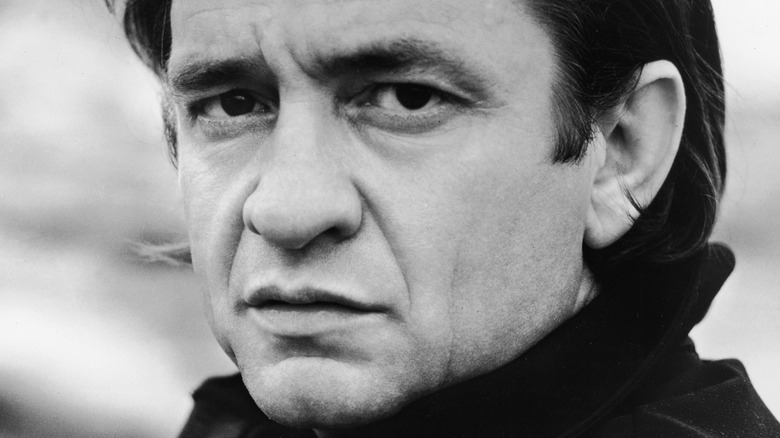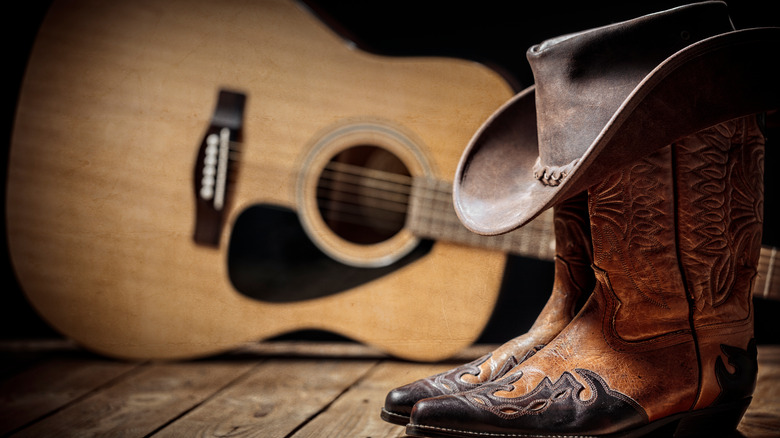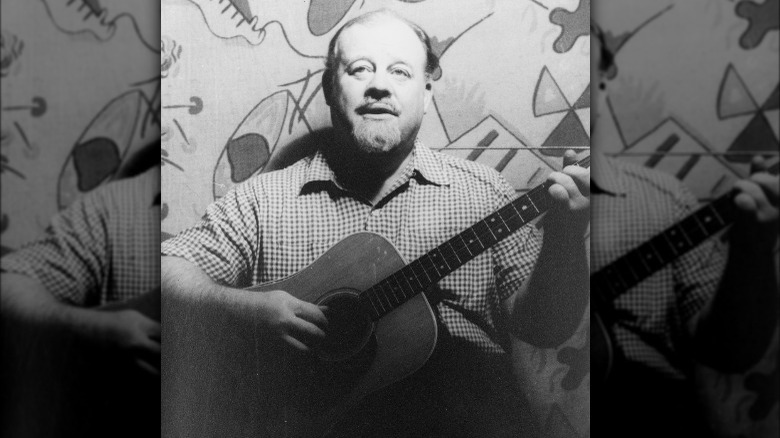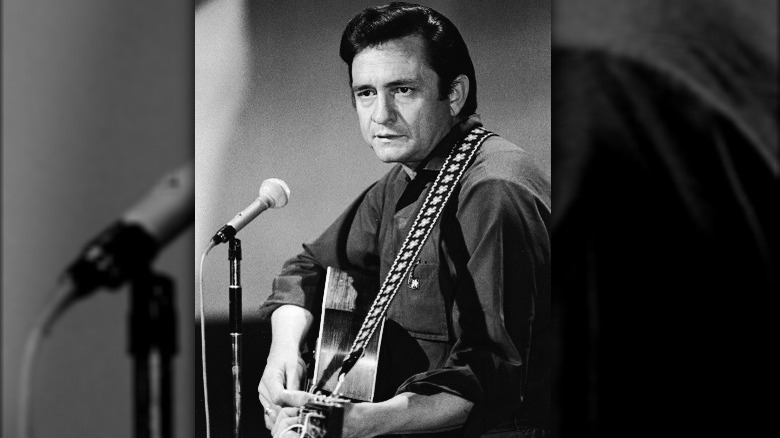The Real Meaning Behind (Ghost) Riders In The Sky
Country music could be said to be one of the more down-to-earth musical genres out there. As the Norton School for the Arts notes, the genre as we know it emerged in Appalachia in the early part of the 20th century, combining elements of Celtic folk music and local rhythms. In the beginning, much of the lyrical content was about the poverty-stricken and hardscrabble lives lived by the performers, and that was largely the case for the next several decades; there's even an old joke that says that if you play a country song backwards, your wife comes back to you, your dog comes back to life, your truck starts working again, etc. Even today, most country music sticks largely to that formula, with the performers singing about, say, partying on the lake or enjoying life in a small town.
Over the decades, a few writers have attempted to take country music in a more mystical direction. For example, back in the 1970s, as Performing Songwriter reports, songwriter Jimmy Webb wrote a mystical country song about a human soul manifesting at various points in history. A few years later the song became a mega-hit when it was recorded by Willie Nelson, Waylon Jennings, Johnny Cash, and Kris Kristofferson.
A few decades earlier, another country songwriter took the genre in a mystical direction. And, Johnny Cash's recording of "(Ghost) Riders In The Sky" may be the most well-known version of that particular song.
Writing Ghost Riders In The Sky
As mentioned above, country music can trace some of its roots back to Europe; at least, musically if not lyrically. In the case of "Ghost Riders In The Sky," however, the songwriter was probably influenced by European legend.
As EsoterX notes, legends abound in parts of Europe — in particular what is now Germany, France, and parts of the British Isles — about the so-called "wild hunt." In this myth, a ghostly team of mounted riders on horseback thunder across the sky in pursuit of their quarry. In some versions, it's a portent of doom; in some, it's an actual danger in which the unwary can be swept up by the ghostly cavalcade; in others, it's both.
Fast forward a few centuries to the Old West in America, where there are wide open spaces, mounted horsemen pursuing their quarry in spades, constant danger (from stampedes, hostile enemies, disease, etc.), and long nights with little to do but tell tall tales over the campfire. It was a perfect stew of superstition that led to the legend being carried over here, with a quintessentially American twist.
And, a century or so later, a songwriter named Stan Jones remembered an old cowboy telling him the tale when he (Jones) was a young boy. So, he decided to pen a song.
A Morality Tale
Back in the 1920s or thereabouts, a young lad named Stan Jones happened to be in one of the most quintessential Old West parts of the country: the Cochise Ranch, in rural Southern Arizona. One day, according to the Arizona Republic, "a kid from town," as he was described by the newspaper, watched as a thunderstorm was getting ready to roll through. An "old cowboy," as EsoterX describes it, warned him to watch for the glowing red eyes of the Devil's cavalry, effectively teaching the young songwriter the American Old West version of the ancient European "Wild Hunt" legend. Fast forward to 1948, and Jones remembered the incident and penned the song, "Ghost Riders In The Sky."
Jones' song differs from the legend in that, in this context, it's less of a portent of doom and more of a morality tale. As noted by AZ Lyrics, a ghostly rider warns a cowboy to change his ways, lest he join the damned cowboys thundering across the sky. "If you wanna save your soul from Hell a-riding on our range, Then cowboy change your ways today or with us you will ride," the warning reads. In 1949, Burl Ives (above) recorded the song, and it became a smash hit.
The Johnny Cash Version
Burl Ives, now largely remembered for voicing Sam the Snowman in the Christmas classic "Rudolph The Red-Nosed Reindeer," recorded a hugely-successful version of Jones' "Ghost Riders In The Sky," but he was not the first to do so, nor would he be the last. Jones himself also recorded a version, along with a backup group, the Death Valley Singers. Crooner Vaughn Moore recorded a version that went to number one, according to Daily Music Break. According to Wide Open Country, multiple other artists (including Finnish metal band Children of Bodom) also recorded their own versions of the song, with varying degrees of success.
However, the most well-known version of the song may be Johnny Cash's rendition, which never made number one, according to Billboard, but did manage to spend 16 weeks at number two in 1979. But, regardless of the multiple versions from multiple artists across multiple genres, the song is, at the end of the day, a country staple. So much so, that Western Writers of America has deemed the song the number one Western song of all time.



